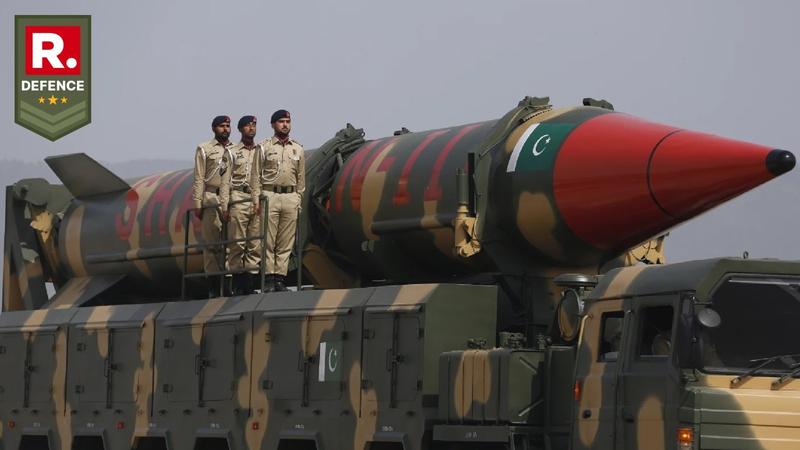Published 17:00 IST, December 20th 2024
Pakistan's Long-Range Missile Program Under Fire as U.S. Imposes New Sanctions
The United States has imposed sanctions on four Pakistani entities linked to missile proliferation, including the state-run National Development Complex (NDC).

Washington, D.C. – The United States has announced a new round of sanctions against Pakistan, targeting entities involved in the development and proliferation of missile technologies. The U.S. Department of State revealed these measures as part of its broader strategy to curb the proliferation of weapons of mass destruction (WMDs) and ensure regional stability.
Entities Under Sanction
The sanctions, enacted under Executive Order 13382, focus on four organizations directly linked to Pakistan's missile program:
- National Development Complex (NDC): A state-owned entity central to Pakistan's ballistic missile development, the NDC has been pivotal in advancing the country’s long-range missile capabilities, including the SHAHEEN series, capable of delivering nuclear warheads.
- Affiliates International: A Karachi-based firm implicated in procuring components for Pakistan’s missile systems.
- Akhtar and Sons Private Limited: Another Karachi-based company providing materials and technology crucial for missile development.
- Rockside Enterprise: A commercial entity involved in sourcing equipment for Pakistan’s ballistic missile programs.
The sanctions freeze any U.S.-based assets owned by these organizations and prohibit American individuals and businesses from engaging with them.
Addressing Pakistan's Missile Proliferation Necessary
State Department spokesperson Matthew Miller emphasized the necessity of addressing Pakistan's missile proliferation as part of global non-proliferation efforts. "These actions underline our commitment to combating the proliferation of WMDs and maintaining international peace and security," Miller stated.

The sanctions align with longstanding U.S. concerns about Pakistan's growing nuclear arsenal, which independent estimates suggest consists of approximately 170 warheads. Pakistan’s non-participation in the Non-Proliferation Treaty (NPT) continues to complicate international efforts to mitigate nuclear threats in South Asia.
Economic Fallout for Pakistan
The sanctions are expected to exacerbate Pakistan's existing economic challenges. Key areas of impact include:
- Restricted Access to International Markets: The inclusion of major firms like NDC in the sanctions list limits Pakistan’s ability to trade with U.S. businesses and access global financial systems, potentially deterring foreign investment.
- Pressure on Defence Spending: The sanctions on NDC may force Pakistan to procure more expensive or less advanced technologies from alternative sources, increasing the strain on its already tight defence budget.
- Reduced Foreign Aid: U.S. sanctions historically lead to diminished economic and military aid from international institutions like the IMF and World Bank, which often align with U.S. foreign policy objectives.
- Economic Isolation: Pakistan risks further isolation in international trade, as its reputation in global markets could be undermined by these restrictions. This comes at a time when the nation faces a projected fiscal deficit of approximately 5.5% of GDP.
Strategic Implications
The sanctions could shift the strategic dynamics in South Asia, heightening tensions between Pakistan and its neighbours, particularly India. Pakistan might respond by increasing military spending to counterbalance perceived security threats.
Domestically, the sanctions are likely to fuel anti-American sentiment, with many in Pakistan viewing such measures as unjust and discriminatory. This could further influence the country’s foreign policy and internal political discourse.

Pakistan has a long-standing nuclear program, having conducted its first nuclear test in 1998. Despite international calls for transparency, the country remains outside the NPT framework, which complicates the monitoring and regulation of its arsenal.
In recent years, the U.S. has also imposed sanctions on foreign entities linked to Pakistan's missile program, including Chinese firms accused of supplying missile-related technology. The Pakistani embassy in Washington has yet to comment on the sanctions. However, previous actions of this nature have drawn strong rebukes from Islamabad, which often views U.S. measures as politically motivated.
Updated 17:00 IST, December 20th 2024




